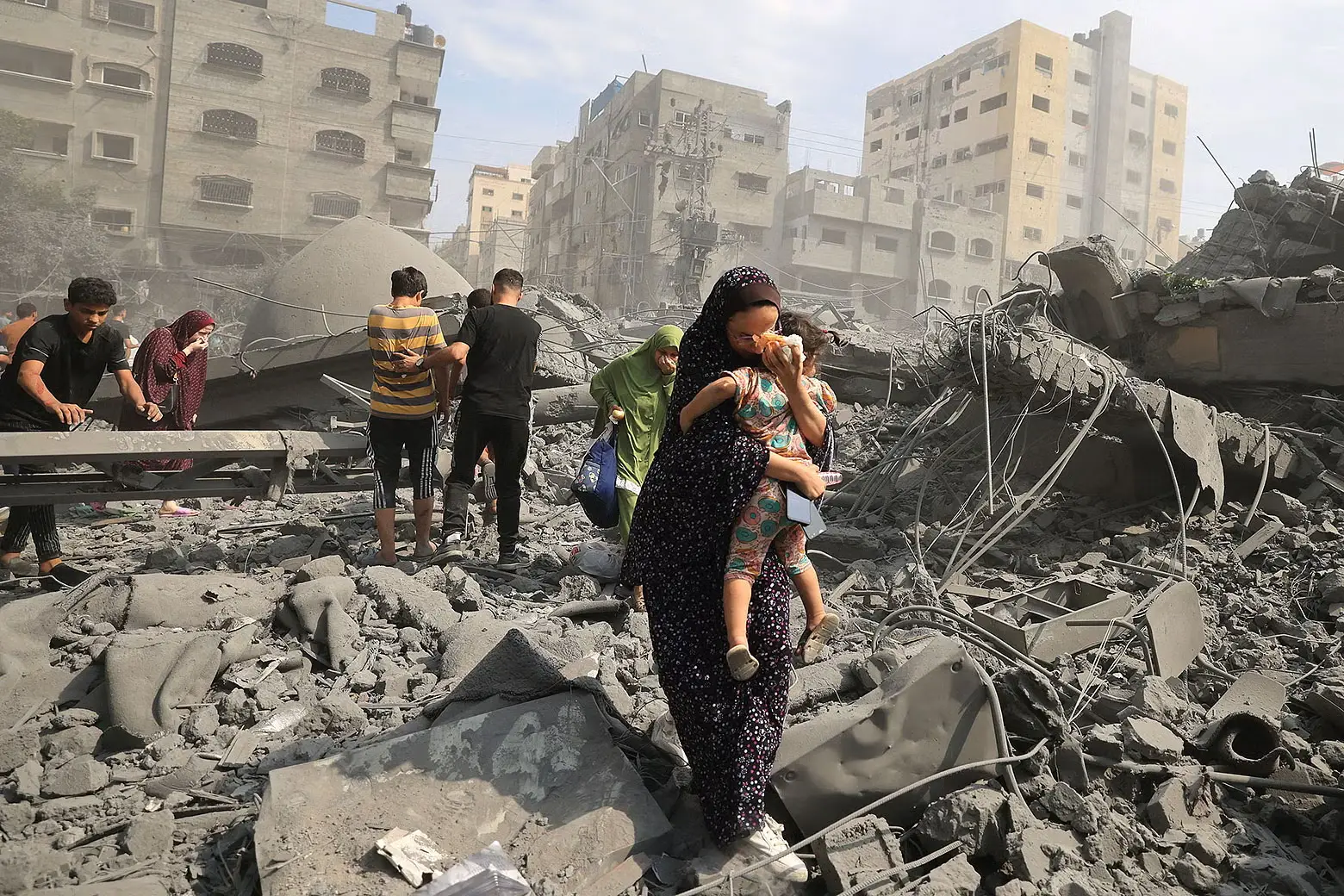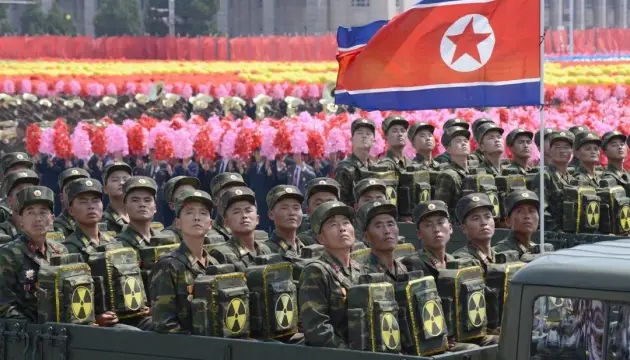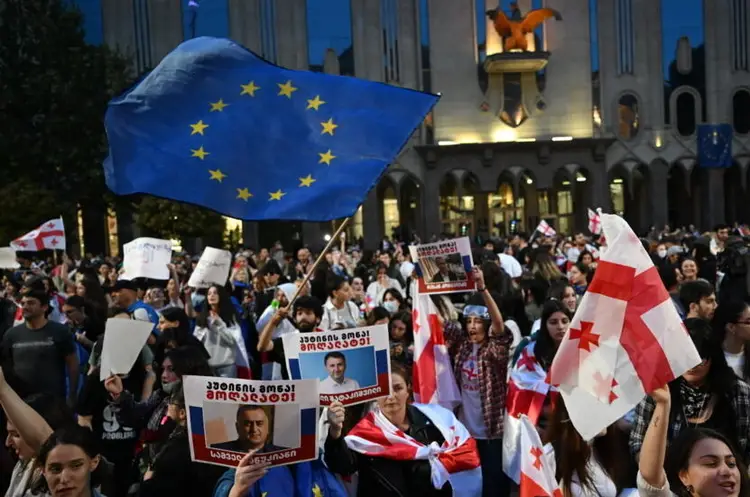Peacekeepers may be introduced to the Gaza Strip – Bloomberg

The US and Israel begin discussing a number of formats for peacekeeping missions in the Gaza Strip
The UnitedStates and Israel have begun discussing various formats for peacekeepingmissions in the Gaza Strip following the liberation of the region fromPalestinian militant group Hamas.
Three primary options forpeacekeeping contingents are being considered:
1. Thefirst option involves transferring temporary control of Gaza to specificregional countries with the support of the military forces from the UnitedStates, the United Kingdom, Germany, and France. Representatives from SaudiArabia and the United Arab Emirates might also participate.
2. Thesecond option is to introduce peacekeeping forces modeled after theMultinational Force and Observers and observer groups currently operating inthe Sinai Peninsula to ensure the implementation of the 1979 peace treatybetween Egypt and Israel.
3. Thethird option is temporary administration of the Gaza Strip under the auspicesof the United Nations. However, Tel Aviv considers this idea non-constructivedue to the perceived inefficiency of the organization. The publication alsonoted that Israeli politician Benny Gantz previously referred to UNSecretary-General Antonio Guterres as an "apologist for terror"because of Guterres's comments attributing some blame to Israel for the Hamasinvasion.
USSecretary of State Antony Blinken commented on the negotiations about Gaza'sfuture, emphasizing the need to avoid returning to the status quo when Hamaswas in control of Gaza. He also highlighted the reluctance to allow Israel togovern or control Gaza, as Israelis themselves are against it. Blinken mentionedthat there are many nuances between these options that the US and othercountries are carefully considering.
Ofer Falk,an advisor on foreign policy matters to the Israeli Prime Minister, mentionedthat several options are being considered for the future of the Gaza Strip"on the day after the destruction of Hamas." All of these options aimat complete demilitarization of the region.
Accordingto Bloomberg, a number of former officials and expert groups have already begunnegotiations with the US and Israel and have presented their own proposalsregarding the composition of peacekeeping missions.
Forexample, the Washington Institute for Near East Policy has called for thecreation of a temporary administration led by Palestinians. They suggest that "aconsortium of five Arab states that have signed peace agreements withIsrael—Egypt, Jordan, the United Arab Emirates, Bahrain, and Morocco—couldmanage public security and law enforcement. Only these Arab states would enjoyIsrael's trust, which is a necessary condition for the success of themission," as stated by experts from the Institute.
Meanwhile,the United Nations Relief and Works Agency for Palestinian Refugees in the NearEast (UNRWA) has expressed its readiness to continue supplying food to Gaza andsupporting healthcare and educational programs in the region.
USofficials also do not rule out the possibility that part of the long-termsolution could involve the introduction of a Palestinian administration in theGaza Strip. Antony Blinken stated that it would be best if an "effectiveand reinvigorated Palestinian Authority took over leadership and responsibilityfor security in Gaza," but he acknowledged that this might take a longtime.
Bloomberghighlights that there are not enough signs of readiness for the PalestinianAuthority, which governs the West Bank, to assume control of Gaza, as the USand the European Union have recognized Hamas as a terrorist group.
Israeliofficials have reiterated that their country's military forces do not intend topermanently stay in the Gaza Strip, but they have also stressed theimpossibility of Hamas ruling after a massive invasion on October 7.
Bloomberg'ssources mentioned that all the described peacekeeping formats in the Gaza Stripcarry significant political risks for US President Joe Biden and othercountries, including those in the Gulf and Israel. Biden believes that even asmall contingent of American troops may pose a political risk, so as of now,the US and other countries are far from making a final decision.
Anothersource mentioned that it's currently unclear whether other Middle Eastern Arabcountries would be interested in hosting peacekeepers.
Hamas Invasion into Israel and Israel's GroundOperation in the Gaza Strip
On October7, the Palestinian group Hamas, based in the Gaza Strip, launched an invasioninto southern Israel, simultaneously carrying out a massive rocket strike oncities across the country. The attack was accompanied by mass killings ofcivilians. According to official estimates, approximately 1,400 Israelis losttheir lives, with over 5,000 sustaining injuries.
Inresponse, Israel declared a state of emergency, mobilized 300,000 reservists,and commenced the destruction of military facilities and the leaders of theterrorist organization.
On theevening of October 27, Israeli forces shelledthe Gaza Strip with artillery and rockets from aircraft, followed by aground operation in the northern part of the region.
IsraeliPrime Minister Benjamin Netanyahu announced on October 30 the commencementof the third phase of the military operation, involving an expansion ofground troops from the Israel Defense Forces (IDF) within the Gaza Strip. Theobjective of this operation is the complete eradication of the Hamas group.












